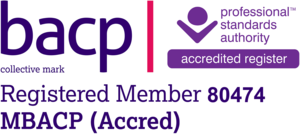The importance of the therapeutic relationship
Research has demonstrated that it is the quality of the relationship between therapist and client which is a key factor in promoting recovery, irrespective of which modality the therapist is using. An important first step towards feeling better in yourself will therefore be finding a suitably qualified therapist with whom you feel you can work well.
At its heart, therapy consists of a meaningful dialogue between therapist and client which is different to everyday conversation. When you meet with your therapist, they will listen closely to what you say, reflecting back to you what they hear and see. This will enable you, maybe for the first time ever, to hear what you’re thinking and feeling reflected back to you in an environment that is confidential and without judgement. Many people find the process of talking with a trained therapist is in itself incredibly useful and empowering, providing the right conditions to promote healing and growth.
My approach
I provide a safe, confidential, non-judgemental space for individuals to explore their issues and find the courage and insight they need to make the changes in their life that they want to make. This is different for each person that I work with and I draw on different modalities of therapy depending on what I feel will be most appropriate.
My practice is integrative, based on the concepts of Alfred Adler (a one-time colleague of Freud). The Adlerian therapeutic relationship is characterised by collaboration between therapist and client, working towards mutually agreed goals, from a consistently encouraging stance. For instance, I might help someone look at the underlying beliefs they hold about themselves, others and the world, and explore where these beliefs stem from. This helps them gain insight into the unique map they have for finding their way through life, and identify, where necessary, alternative ways of thinking and behaving. Another person might want to look more at here-and-now issues and collaboratively explore ways through situations that they are currently experiencing e.g. work-place bullying.
I incorporate elements of other modalities into my work as appropriate, notably Mindfulness, Compassion Focused Therapy, Cognitive Behavioural Therapy and Interpersonal Therapy. All of these approaches have been proven to have a positive impact on a person’s well-being:
Mindfulness – helpful in calming busy minds, learning to pay positive attention to the present moment, reducing regretful rumination about the past and worries about the future.
Compassion Focused Therapy – helpful in developing self-compassion, feeling more connected and overcoming shame and self-criticism.
Cognitive Behavioural Therapy – helpful in identifying, challenging and breaking vicious cycles set up between and perpetuated by our thinking, behaviour, emotions and bodily feelings (physiology).
Interpersonal Therapy – helpful for people suffering from depression associated with a social and an interpersonal event such as a marriage break up, conflict in a relationship, job loss, becoming a parent, loss of a loved one, circumstances leading to loneliness and isolation.
What is the difference between counselling and psychotherapy?
The difference between counselling and psychotherapy is an interesting one. Many therapists do not make a distinction. I see them as a continuum. Speaking in very general terms, counselling may not last as long or go as deep into issues as psychotherapy. If I am seeing someone for longer than 8 – 12 sessions, it could be argued that the therapy is moving more towards psychotherapy.
If you would like to explore the possibility of having Counselling or Psychotherapy with me, please click here
